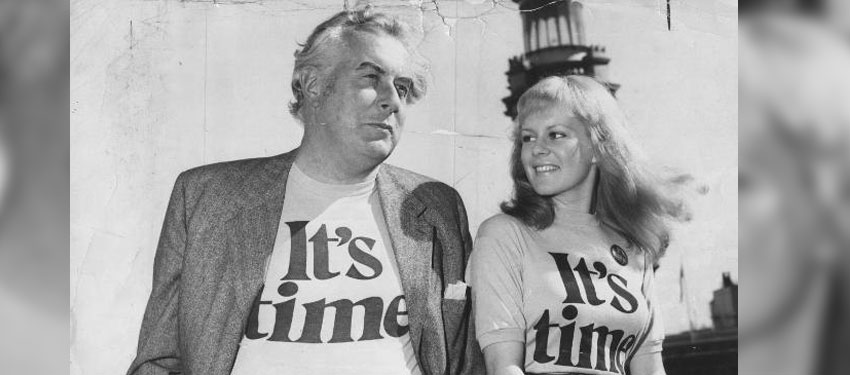
Letter to gay activists shows Gough Whitlam’s early influence on decriminalisation

EARLY correspondence between Gough Whitlam and gay liberation activists provides insight into the origins of the former Prime Minister’s influence on the decriminalisation movement, and his attitudes to homosexuality.
Activist and author Dennis Altman shared with the Star Observer a letter from Whitlam dated 14 August, 1972 — just months before the election that made him Prime Minister. The letter was a response to Altman sending the then-Opposition Leader a copy of his seminal book, Homosexual: Oppression and Liberation.
In the letter, Whitlam shared with Altman his expectations that a newly-elected Federal Labor government would act on reforming laws criminalising homosexual sex in the territories.
“The draft criminal code for the territories contains some fearsomely archaic prohibitions on personal conduct,” Whitlam said in his letter.
“My expectation is that a Federal Labor government would introduce a new ordinance which made no reference to any form of sexual conduct not involving violence.”
Whitlam went on to say he believed the election of a Labor government would prompt a change in social attitudes to homosexuality.
“My deep belief is that a change of government after so long will have a profoundly liberating effect on the whole community, and that, in such an atmosphere, the community will shake itself free of a great deal of the preoccupations and hang-ups which have led to so much persecution,” he said.
“Those who make and enforce the laws have much more important things to achieve.”

Reflecting on the influence of the political figure, who died on Tuesday aged 98, Altman told the Star Observer he believes Whitlam had strong views on homosexuality.
“I think Gough had deep empathy for people who were gay — I think he was genuinely puzzled by homophobia,” Altman said.
“For an Australian of his generation that was not homosexual I think Gough had a remarkable ease.”
Altman suggested Whitlam’s friendship with American writer and intellectual Gore Vidal had influenced his attitudes to homosexuality — Altman was also friends with Vidal.
“I’ll always remember Gore saying to me, talking about Gough — because they were very similar in personality — Gore saying to me that there’s a difference between vanity and overweening vanity, but I wasn’t sure which one of them had the overweening vanity,” Altman said.
“They were both big, majestic figures, and Gore loved Gough, because he was the Prime Minister that he could talk to about Roman emperors.”
Whitlam had come out in support of homosexual law reform as early as 1970, with comments he made at the Labor Women’s Conference.
Historian and president of the Australian Lesbian and Gay Archives Graham Willett told the Star Observer Whitlam’s support for homosexual law reform reflected a growing conversation about the issue in Australian society at the time.
“It didn’t come out of the blue — it was in the air,” Willett said.
“Gay people made this an issue more than anybody else. As with all of Whitlam’s reforms, they all came out of society. He didn’t invent any of this stuff, he picked up on it and ran with it.”
Willett argued that while he was indeed personally supportive of the idea of decriminalisation, Whitlam’s real contribution to the movement came through his opening up the Australian Labor Party to outside groups, including those lobbying for homosexual law reform.
“He had opened up the political process to all kinds of outsiders so that they could speak to the party,” he said.
“With this as with so much else in the Whitlam program that the pressure came from society. His genius really was to tap into that, to recognise its importance, and to push the party.”










40 years of equality activism and still no marriage equality within Australia!
This just shows how long this fight has been going on for. No time do give up now! @SpeakUAgainst
Ted